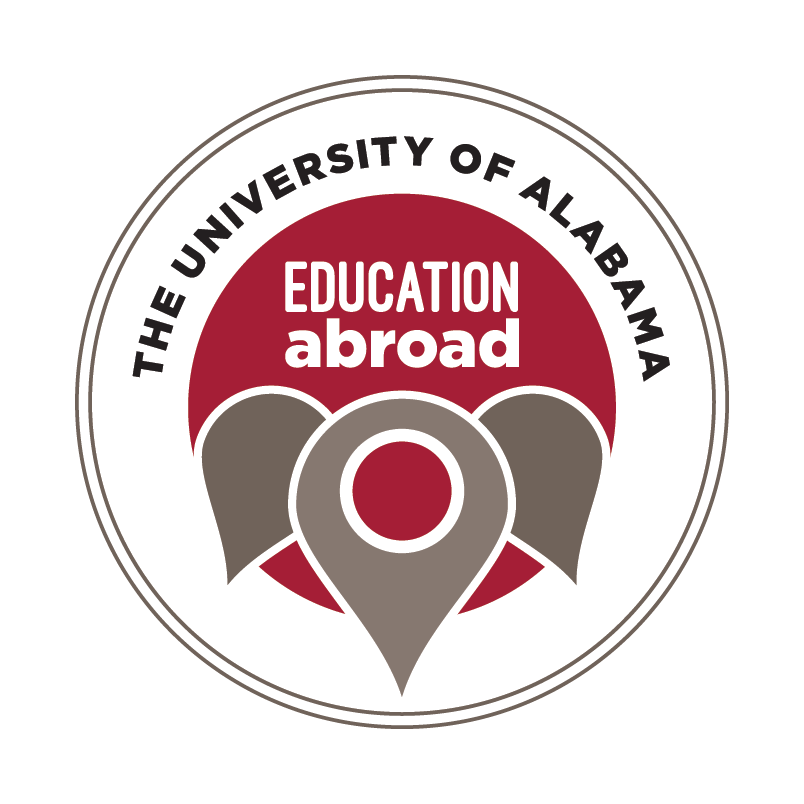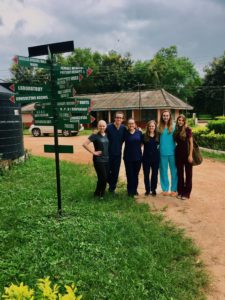Not but three days ago, I left Ghanaian soil with more fulfillment of medical and cultural knowledge than I ever wished for. Most especially, I believe my conversation with the Ghanaian man that sat next to me on the plane ride home was a special summation of all I experienced in Ghana. Once my seat neighbor, Edam, and I started chatting, he dove right into his inquiries of my home culture versus Ghanaian culture as most Ghanaians do. I had notably seen differences, however no one had asked me to sum up my cultural observations so simply. His question was straight-forward, thus I couldn’t avoid my reflections. I started with telling Edam my favorite part of the African culture. Finding it hard to epitomize all the love I’d cultivated for the country, I managed to start my answer with my admiration for Ghana’s people. In many parts of America, the people are controlled by a meaningless notion for busyness and preoccupation. These notions come to dilute the present moment for many Americans and narrow their visions for the experiences surrounding them. Also, with American technology, we can more easily make contact with people on the furthest corners of the planet, but sometimes in that process we lose contact with ourselves and we lose true connection and care for those right next to us. What I loved about Ghana was how different the Ghanaian notions were from those of America. In Ghana, the pace of life was far slower. Even though at times inefficient (especially when wanting your chicken and jollof rice at ANY Ghanaian restaurant), such a slow pace has produced a sense of diligence and care in the Ghanaian culture. The people not only embrace their present circumstances with liveliness, but they also embrace the people around them. Everyone is a brother or sister, and everyone has the patience to help somebody else. People in America fail to expand their visions to fit others in the picture, and it was refreshing to feel worth someone else’s time and to make someone else feel worth mine. Under Ghanaian time, I found myself finally letting go of my need to be busy. After hours of work in the humid heat (of which I also came to patiently accept), I had the hours to myself that I had so often wished for during my busy American mindset. I soon came to love my time of journalling, reading, resting, and most importantly, spending time with the others around me because they had companionships and perspectives to offer me, their “sister.”
I also expressed to Edam my wonderment for the doctors in Ghana. In America, health care is centered around checking patients off a list in order to take care of as many people as possible. However, quantity can mitigate quality, especially in patient care. Alternatively, I noticed a unique patience and perseverance in the Ghanaian doctors unlike some American doctors. Because their technology is less advanced than America’s, those studying medicine in Ghana must learn and become masters of a plethora of medical procedures. Also, without the luxury of great school systems, Ghanaian med students most often must climb the competitive road to doctorship through their own efforts. I remember one nurse I met in the wound clinic of the Ghana District Health Center named Jude who completely exemplified these efforts. He told me of his birth village in the north that was void of resources or suitable schools. His childhood also lacked guardian support and encouragement from those around him. Thus, he had to ink in the sketches of his dreams himself to reach his goals. Every day after working hours at the health center, he walks miles home to read books on medicine, philosophy, politics, and business. He studies essays and inspires conversations about worldly opinions and health care issues as he did so with me many times in the clinic. Jude wishes to become a surgeon in Canada but venture back to his home country. I told Edam how I deeply admired the Ghanaian culture of honorable and self-made doctors like Jude. Even when Jude’s early life climate was expected to “yellow” his character, he rose above the circumstances and tenaciously established a green future for himself.
To finish my reflection of Ghana, I’d like to include an excerpt from my journal dating back to the special day in the Ghanaian Clinic when I got to witness my first live birth.
“Today I saw a woman bleed and scream and clench her hands white from pain. Today I also saw that woman give breath and life and love to a child who had never seen the world before. Even after enduring such suffering, I’d never watched such bloodshot eyes show love so heavenly towards any being before. I looked at the lavender baby. She looked like her seventeen year old mother, except this child hadn’t experienced any moments at all. This little girl had never burnt her finger, scraped her knee, or broken her heart, and I couldn’t stand to think that the world had yet to wound her. Yet, looking at the nurses and doctors who smiled with joy for the miracles they brought forth each day, I also knew this little girl also had yet to climb coconut trees, hear beautiful hymns, make a best friend, and feel the lightness of love.”
I realized in that delivery room that if I was to study medicine and become a doctor, I would be learning more than human anatomy. Moreover, I would be equipping myself to take part in God’s miracles–embracing the disease and suffering of our humanness and bringing green leaves out of the yellow. Dr. Paul Kalamithi in his book, When Breath Becomes Air, states my own conclusions perfectly:
“Science may provide the most useful way to organize empirical, reproducible data, but its power to do so is predicated on its inability to grasp the most central aspects of human life: hope, fear, love, hate, beauty, envy, honor, weakness, striving, suffering, virtue…The physician’s duty is not to stave off death or keep patients from ever feeling pain, but to take into our arms a patient and family whose lives have disintegrated and work until they can stand back up and face, and make sense of, their own existence” (Kalanithi).
Thank you Ghana for bringing me to believe in these virtues for my own future.

